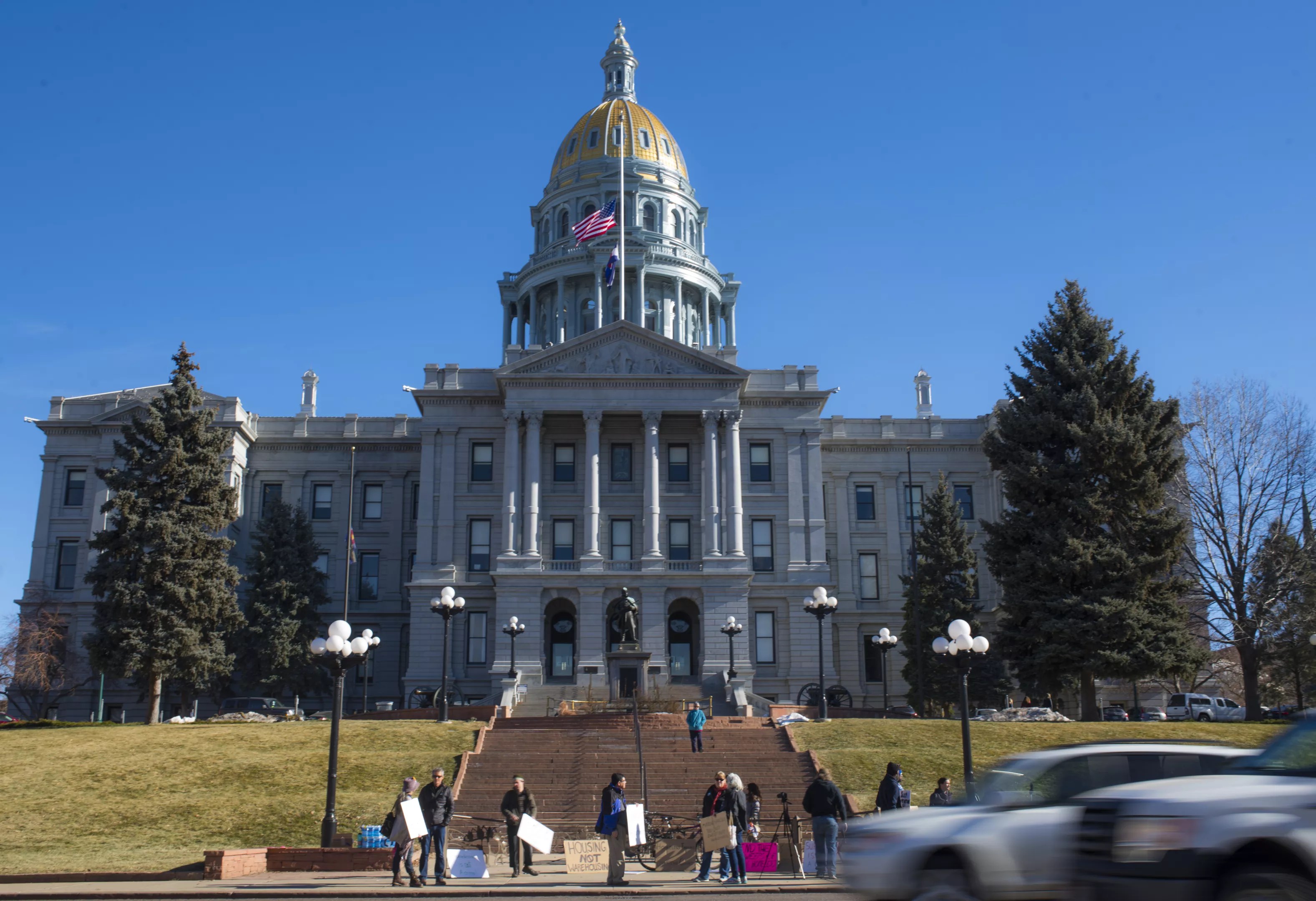
Evan Sem

Audio By Carbonatix
The Colorado General Assembly is tentatively scheduled to resume its suspended 2020 legislative session later this month, but it’s quickly becoming clear that lawmakers will have a lot less on their agenda than they did before the coronavirus pandemic hit.
Colorado Democrats’ proposal for a state-level public-health insurance option is the latest bill to fall victim to a shrinking window of opportunity at the Capitol, where leaders are preparing to make millions in budget cuts because of declining revenues and grappling with how to keep lawmakers, staff and the public safe when session resumes. The primary sponsors of House Bill 1349, Senator Kerry Donovan and representatives Dylan Roberts and Chris Kennedy, say that “now is not the right time” to move forward with the public-option legislation.
“We have reached the difficult decision of withdrawing the Colorado Option from this year’s session in order to ensure that those whom the bill is meant to serve and help can be robustly involved in the process,” the lawmakers wrote in a Denver Post op-ed published today, May 4.
It’s a subdued conclusion to what not long ago had been expected to be one of the highest-profile battles of the legislative session. Colorado’s unique plan, backed by Governor Jared Polis and drafted by state regulators in a lengthy development process last year, would have required private insurers to sell the state option alongside other plans on Colorado’s health-care exchange, subject to rate-setting and other regulations enacted by its Division of Insurance.
The proposal was bitterly opposed by deep-pocketed hospital and insurance groups, which had geared up for an intense lobbying fight and funded a barrage of TV ads attacking the proposal beginning last December. The bill’s sponsors say that the inability to hear from “stakeholders” – including health-care workers who are currently on the front lines of the pandemic – led to their decision to withdraw the bill.
“We take the job of writing law very seriously and believe in a transparent, public, and accessible process,” Donovan, Roberts and Kennedy wrote. “At this time, it does not feel sensible to broadly invite the public to come to the Capitol to share their stories while keeping everyone safe.”
Democrats’ retreat on the Colorado Option comes as the ranks of uninsured swell rapidly, with hundreds of thousands of Coloradans losing their jobs because of shutdowns and the broader economic impact of the pandemic. An analysis just released by the Urban Institute estimates that as many as 43 million Americans could lose their employer-sponsored coverage if the country’s unemployment rate rises to 20 percent, as many economists expect it to in the coming months.
About half of the newly uninsured can expect to qualify for Medicaid, according to the Urban Institute report, but the other half will need to turn to the individual insurance market – where the low-cost Colorado Option would have been offered beginning in 2022 – if they want to get covered.
The state option’s demise comes just days after Democrats announced that another high-stakes fight over health policy, their effort to pass a guaranteed paid-leave program, will be scrapped after sponsors instead endorsed a related ballot measure. But while some of the party’s priorities are being sacrificed because of the multibillion-dollar shortfall that state budget writers now face, the public-option bill would have only cost the state about $1.6 million over the next two years, according to its fiscal note.
Despite withdrawing the bill for now, sponsors say the coronavirus pandemic has only further highlighted the inequities in the American health-care system and the need for reforms that bring down costs and expand coverage.
“We will continue to not only work on the Colorado Option over the next months and year,” they wrote, “but also fight to make sure the healthcare industry focuses on people, not profits, and we will look for any possible solution to support those who lose health care or simply lack access to it.”